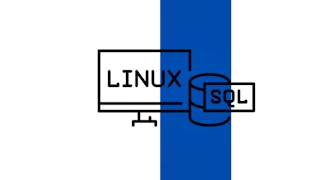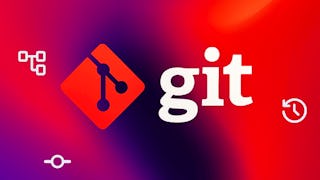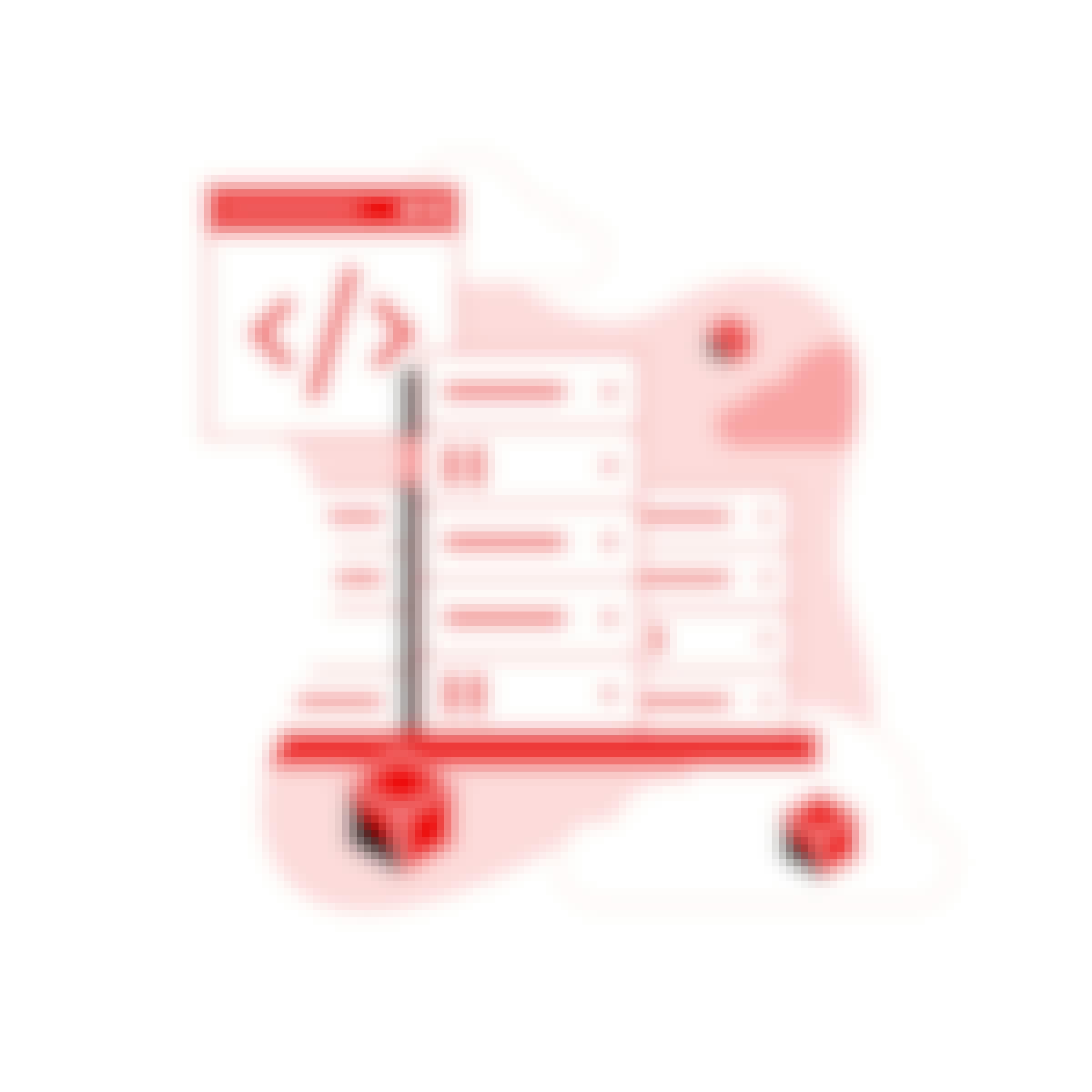- Browse
- Linux
Linux Courses
Learn Linux for system administration and development. Understand Linux commands, shell scripting, and system management.
Filter by
SubjectRequired *
LanguageRequired *
The language used throughout the course, in both instruction and assessments.
Learning ProductRequired *
LevelRequired *
DurationRequired *
SkillsRequired *
SubtitlesRequired *
EducatorRequired *
Find the best Linux course for your goals
 Status: Free TrialFree Trial
Status: Free TrialFree TrialSkills you'll gain: Linux Commands, Bash (Scripting Language), Shell Script, File Management, Linux, Unix Commands, Linux Servers, Scripting, Command-Line Interface, Ubuntu, Scripting Languages, Unix, Operating Systems, Network Protocols, Automation, Software Installation
4.6·Rating, 4.6 out of 5 stars1.7K reviewsBeginner · Course · 1 - 4 Weeks
 Status: Free TrialFree Trial
Status: Free TrialFree TrialSkills you'll gain: Bash (Scripting Language), Operating Systems, File Systems, Linux Commands, Linux, SQL, Unix, Database Management, Command-Line Interface, Relational Databases, Authorization (Computing), Authentications, User Accounts
4.8·Rating, 4.8 out of 5 stars5.9K reviewsBeginner · Course · 1 - 4 Weeks
 Status: Free TrialFree TrialL
Status: Free TrialFree TrialLLearnQuest
Skills you'll gain: Linux, Linux Commands, Linux Servers, Ubuntu, Linux Administration, File Management, Command-Line Interface, Unix Commands, Operating Systems, Web Servers, IT Automation, MySQL, Open Source Technology
4.5·Rating, 4.5 out of 5 stars938 reviewsBeginner · Course · 1 - 4 Weeks
 Status: Free TrialFree TrialT
Status: Free TrialFree TrialTThe Linux Foundation
Skills you'll gain: Package and Software Management, Open Source Technology, Git (Version Control System), Linux, Command-Line Interface, Bash (Scripting Language), File Systems, Unix Commands, GitHub, Linux Administration, Version Control, Linux Commands, User Accounts, CI/CD, Shell Script, Operating System Administration, System Configuration, Collaborative Software, Software Development Tools, Software Versioning
4.6·Rating, 4.6 out of 5 stars3.1K reviewsBeginner · Specialization · 3 - 6 Months
 Status: Free TrialFree Trial
Status: Free TrialFree TrialSkills you'll gain: Linux, Linux Administration, Linux Commands, Linux Servers, Shell Script, Unix, Unix Shell, Systems Administration, Unix Commands, Command-Line Interface, Patch Management, Scripting Languages, Package and Software Management, Virtualization and Virtual Machines, File Systems, File Management, Data Storage, Security Controls, User Accounts, Authorization (Computing)
4.7·Rating, 4.7 out of 5 stars7 reviewsIntermediate · Specialization · 3 - 6 Months
 Status: Free TrialFree TrialL
Status: Free TrialFree TrialLLearnQuest
Skills you'll gain: Package and Software Management, Linux Administration, Linux, Linux Commands, Virtual Private Networks (VPN), Linux Servers, System Monitoring, Operating System Administration, Public Key Infrastructure, Ubuntu, Version Control, File Management, Command-Line Interface, Intrusion Detection and Prevention, Git (Version Control System), File Systems, User Accounts, Firewall, Cloud Computing Architecture, DevOps
4.5·Rating, 4.5 out of 5 stars1.2K reviewsBeginner · Specialization · 3 - 6 Months
What brings you to Coursera today?
 Status: NewNewStatus: Free TrialFree Trial
Status: NewNewStatus: Free TrialFree TrialSkills you'll gain: Bash (Scripting Language), Shell Script, Linux, Scripting, Linux Commands, Linux Administration, Unix Shell, Scripting Languages, Operating System Administration, Unix Commands, Systems Administration, Command-Line Interface, IT Automation, Software Installation, Unix, Linux Servers, Cloud Hosting, Object-Relational Mapping, YAML, Automation
Beginner · Specialization · 3 - 6 Months
 Status: Free TrialFree Trial
Status: Free TrialFree TrialSkills you'll gain: Linux, Package and Software Management, Linux Administration, Red Hat Enterprise Linux, Linux Commands, User Accounts, Operating System Administration, Linux Servers, OS Process Management, Command-Line Interface, File Management, Unix Shell, System Monitoring, General Networking, Firewall, Open Source Technology
4.9·Rating, 4.9 out of 5 stars83 reviewsBeginner · Course · 1 - 3 Months
 Status: Free TrialFree TrialStatus: AI skillsAI skillsG
Status: Free TrialFree TrialStatus: AI skillsAI skillsGGoogle
Skills you'll gain: Threat Modeling, Network Security, Threat Management, Incident Response, Vulnerability Management, Computer Security Incident Management, Hardening, Intrusion Detection and Prevention, Security Management, Cyber Threat Intelligence, Cyber Attacks, Cybersecurity, Network Protocols, Cloud Security, Bash (Scripting Language), Debugging, Linux, Interviewing Skills, Python Programming, SQL
Build toward a degree
4.8·Rating, 4.8 out of 5 stars60K reviewsBeginner · Professional Certificate · 3 - 6 Months
 Status: Free TrialFree TrialU
Status: Free TrialFree TrialUUniversity of Colorado Boulder
Skills you'll gain: Agile Methodology, Scrum (Software Development), System Programming, Embedded Software, Software Testing, Embedded Systems, Linux, Agile Software Development, Docker (Software), Git (Version Control System), Linux Commands, Linux Administration, Operating Systems, Shell Script, C++ (Programming Language), Debugging, File Systems, Internet Of Things, OS Process Management, Peripheral Devices
4.3·Rating, 4.3 out of 5 stars149 reviewsIntermediate · Specialization · 1 - 3 Months
 Status: Free TrialFree TrialT
Status: Free TrialFree TrialTThe Linux Foundation
Skills you'll gain: Package and Software Management, Linux, Command-Line Interface, File Systems, Unix Commands, Linux Administration, Linux Commands, User Accounts, Operating System Administration, System Configuration, System Monitoring, Operating Systems, Network Monitoring, Graphical Tools
4.5·Rating, 4.5 out of 5 stars1.4K reviewsBeginner · Course · 1 - 3 Months
 Status: NewNewStatus: Free TrialFree Trial
Status: NewNewStatus: Free TrialFree TrialSkills you'll gain: Bash (Scripting Language), Shell Script, Linux Commands, Unix Shell, Unix Commands, Linux Administration, Linux, Scripting, File Management, Unix, Command-Line Interface, Scripting Languages, Debugging, System Configuration, User Interface (UI), IT Automation, Interactive Design, Programming Principles, OS Process Management
Beginner · Specialization · 1 - 3 Months
Linux learners also search
In summary, here are 10 of our most popular linux courses
- Hands-on Introduction to Linux Commands and Shell Scripting: IBM
- Tools of the Trade: Linux and SQL: Google
- Linux Fundamentals: LearnQuest
- Open Source Software Development, Linux and Git: The Linux Foundation
- Complete Linux Training Course to Get Your Dream IT Job: Packt
- Learning Linux for LFCA Certification: LearnQuest
- Linux & Python Automation with Bash Scripting: EDUCBA
- Fundamentals of Red Hat Enterprise Linux: Red Hat
- Google Cybersecurity: Google
- Advanced Embedded Linux Development: University of Colorado Boulder
Frequently Asked Questions about Linux
Browse the Linux courses below—popular starting points on Coursera.
Linux courses cover a variety of topics essential for understanding and managing the Linux operating system. These include the basics of Linux commands, file systems, and shell scripting. Learners will explore topics such as system administration, network configuration, and security practices. Advanced courses might cover areas like server management, performance tuning, and using Linux for DevOps and cloud computing. Practical exercises and projects help learners apply these concepts to real-world scenarios, enhancing their ability to effectively use and manage Linux systems.
Yes. You can start learning Linux on Coursera for free in two ways:
- Preview the first module of many Linux courses at no cost. This includes video lessons, readings, graded assignments, and Coursera Coach (where available).
- Start a 7-day free trial for Specializations or Coursera Plus. This gives you full access to all course content across eligible programs within the timeframe of your trial.
If you want to keep learning, earn a certificate in Linux, or unlock full course access after the preview or trial, you can upgrade or apply for financial aid.
A certificate in Linux can open up various career opportunities in IT, system administration, and network management. Common roles include Linux system administrator, DevOps engineer, network administrator, and IT support specialist. These positions involve managing Linux servers, configuring networks, ensuring system security, and supporting IT infrastructure. With the increasing use of Linux in enterprise environments, earning a certificate in Linux can significantly enhance your career prospects and opportunities for advancement in fields such as technology, finance, healthcare, and telecommunications.










